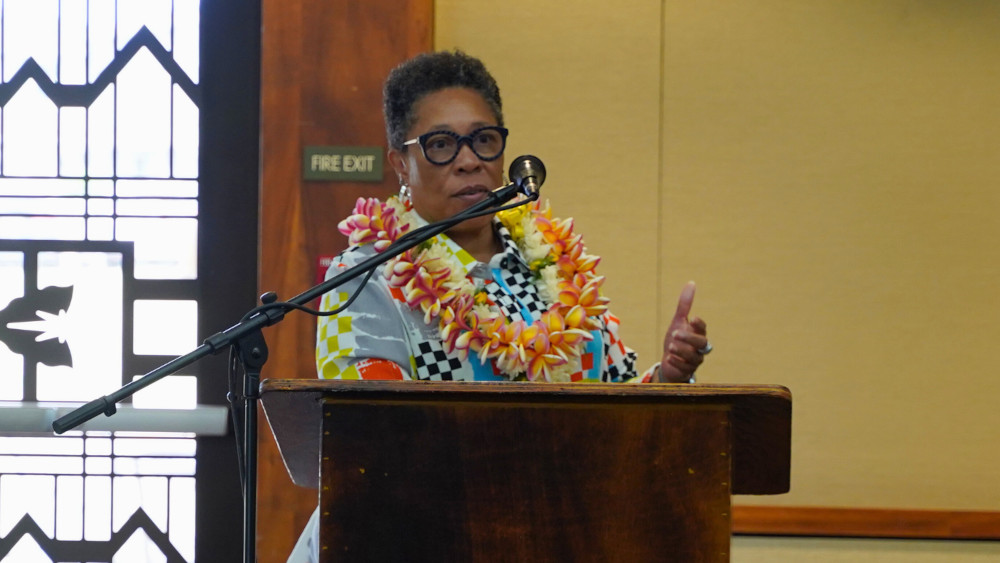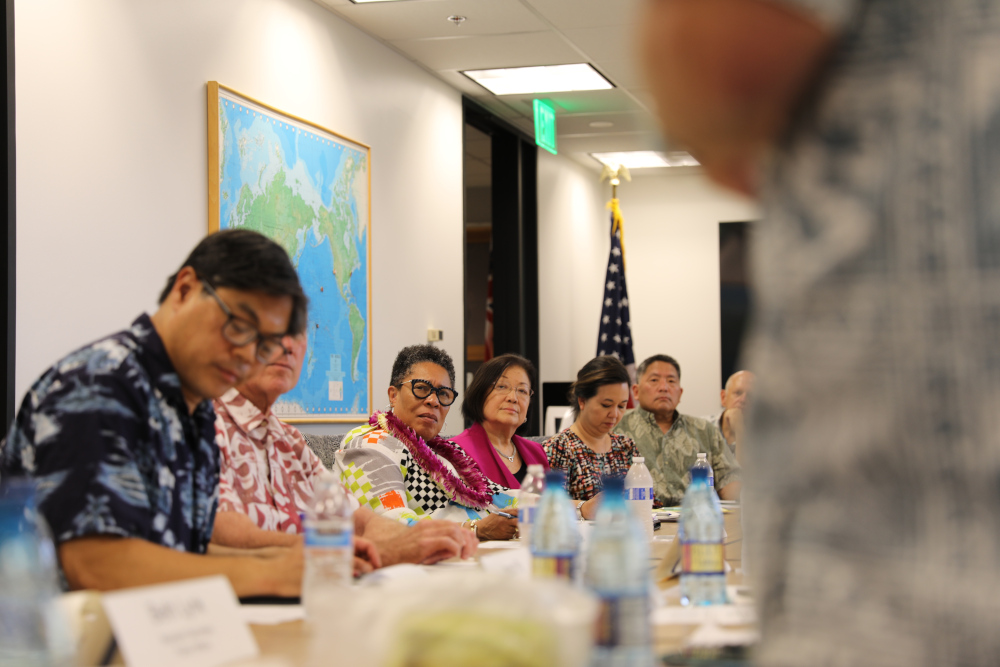(BIVN) – The United States Secretary of Housing and Urban Development was recently in Hawaiʻi, visiting with state leaders, engaging with Native Hawaiian beneficiaries, and announcing new sources of funding for homeless services, including $3.1 billion available through HUD’s Continuum of Care Program.
HUD Secretary Marcia Fudge joined Senator Mazie Hirono (D, Hawaiʻi) and other public officials for roundtable discussions.
“It is a pleasure to be in Hawaii,” said Secretary Fudge in a news release. “Investments in local organizations that can connect people experiencing homelessness to permanent housing and address their deeper needs is a part of the solution, it much be coupled with more affordable housing and supportive services. HUD will continue to demonstrate its commitment to creating affordable housing for homeless individuals and families here in Hawaii and across the country.”
From a Monday news release provided by the Senator:
This morning, Senator Hirono and Secretary Fudge met with the Department of Hawaiian Home Lands (DHHL) and heard from community members about their experiences with the Native Hawaiian Housing Block Grant (NHHBG) program, which aims to provide affordable housing opportunities to Native Hawaiians with low incomes who are eligible to reside on Hawaiian Home Lands. Senator Hirono and Secretary Fudge were also joined by U.S. Representative Jill Tokuda (D-HI); Kali Watson, Chair of DHHL; and Jason Pu, HUD Regional Administrator.
Afterwards, Senator Hirono and Secretary Fudge participated in a roundtable discussion with officials from state, local, and federal levels of government—including Hawaii Governor Josh Green; U.S. Representative Jill Tokuda (D-HI); U.S. Representative Ed Case (D-HI); Hawaii Island Mayor Mitch Roth; and more—to talk about the needs of Hawaii’s homeless population. At the start of the event, Secretary Fudge announced HUD will make more than $3.1 billion in competitive funding available through HUD’s Continuum of Care (CoC) Program, the largest source of federal grant funding for homeless services and housing programs serving people experiencing homelessness. If awarded, this funding could significantly help Hawaii build on successful initiatives that support those experiencing homelessness, and prevent new individuals and families from entering homelessness.
“Today, we heard from several community members, leaders, and elected officials about the impact that HUD’s programs have had on Hawaii’s communities—particularly, the Native Hawaiian community—as we work to address homelessness and the lack of affordable housing in our state,” said Senator Hirono in the news release. “Leaders from the state, local, and federal levels of government came together to discuss how to ensure that Native Hawaiians, our homeless population, and other communities have the resources they need in order to find and secure safe, affordable homes. I will continue working with Secretary Fudge, and other state, local, and federal partners, to develop long-term solutions to address Hawaii’s housing crisis and expand affordable housing options for communities across the islands.”
“By listening to the struggles and success stories of Native Hawaiian beneficiaries, we gain essential insights into their unique needs,” said the Chair of the Department of Hawaiian Home Lands, Kali Watson, in a news release provided by the Council for Native Hawaiian Advancement (CNHA). “It is through collaboration and shared responsibility that we can develop comprehensive solutions to address the housing disparities faced by our communities.”
“Today’s visit has reinforced the urgent need for comprehensive housing strategies for Native Hawaiians,” added CNHA Director of Emergency Financial Assistance, Richard Medeiros. “By harnessing the voices and experiences of those directly affected, we can develop effective policies and programs that make a meaningful impact on their lives.”



by Big Island Video News7:42 am
on at
STORY SUMMARY
HONOLULU, Hawaiʻi - Secretary Marcia Fudge announced HUD will make more than $3.1 billion in competitive funding available through HUD’s Continuum of Care Program.